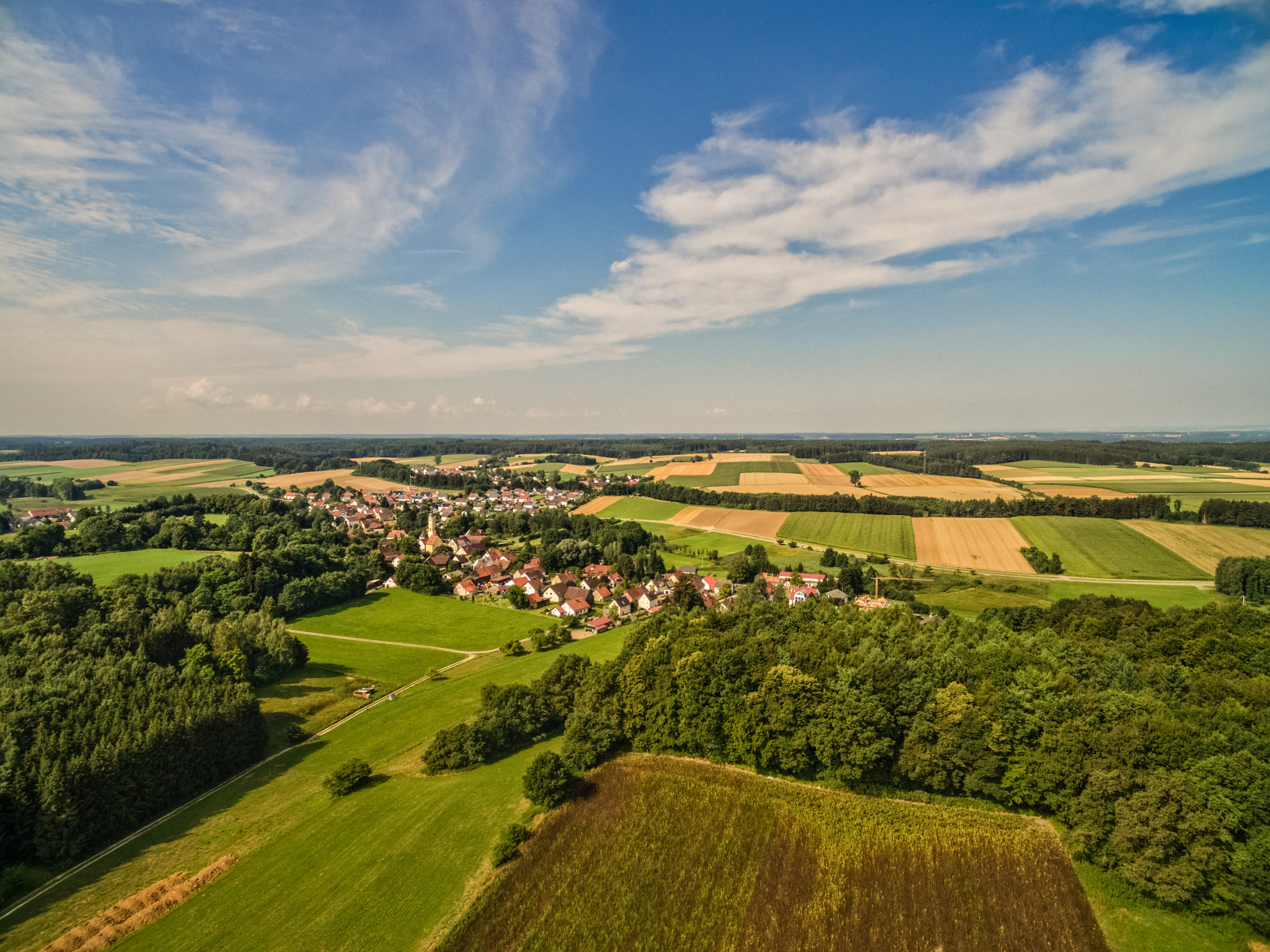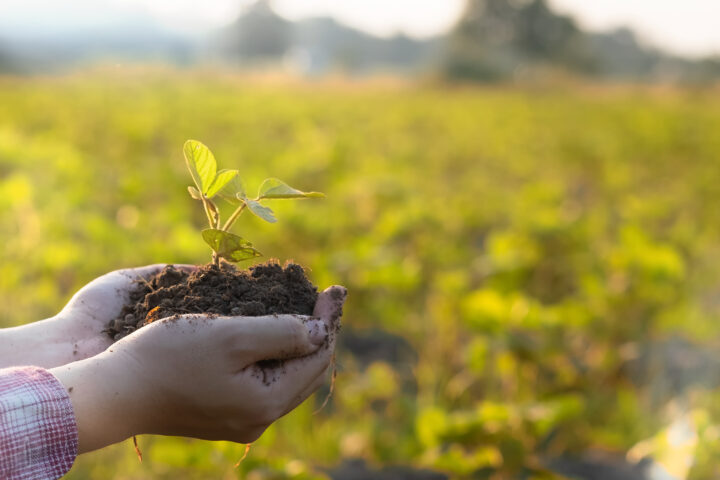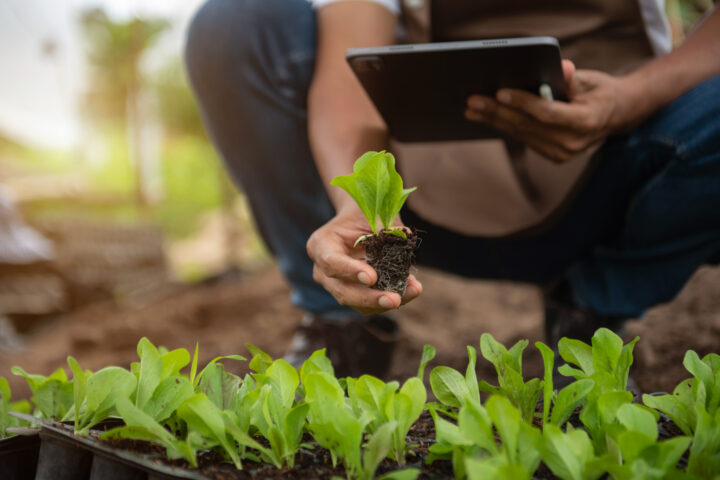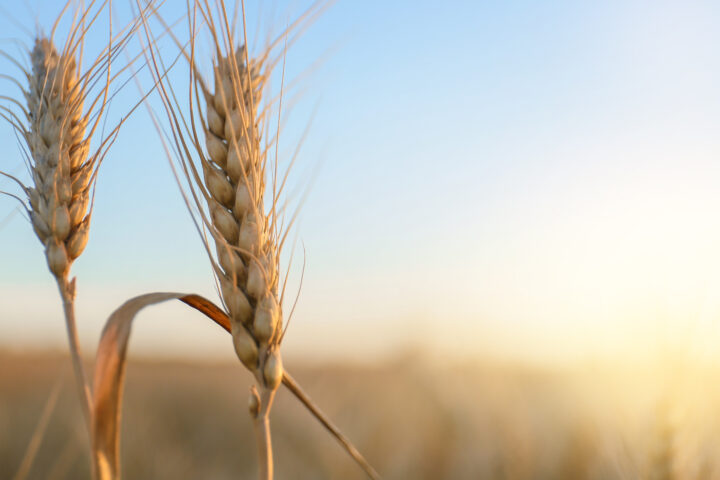
Productive agriculture helps the climate and biodiversity
There is a common belief that organic farming is good for the climate and that it promotes biodiversity. However, this notion is increasingly be proven incorrect. The larger amount of land required for organic farming means there is less land available with a high binding effect on greenhouse gases. A British study has concluded that the larger amount of land required for organic farming means there is a greater impact on biodiversity than intensive farming on smaller plots.
Wednesday, October 13, 2021
Key information at a glance:
- There is mounting scientific evidence that, on the whole, organic farming does more harm to the climate and biodiversity than good.
- This is because of the large amount of land it requires. On average, organic farming on the same size plot yields only half as much as conventional farming.
- According to a study by the University of Cambridge, biodiversity benefits from “more compact production.” In other words, use small plots to produce a lot of food so that other land can be left entirely to nature.
In an article entitled “The Environmental Error,” German newspaper “Die Welt” reports on the adverse effects of organic farming on the climate. Many scientists agree that, on balance, organic farming does more harm to the climate than good. According to renowned agricultural economist Herbert Ströbel, this is because on average environmental farming on the same size plot only yields half as much as conventional farming. Because it is being used for cultivation, the additional land that is required, which is taken from forests and other natural spaces, binds significantly less CO2 than it did previously. Producing eight metric tons of grains using organic farming releases up to 12 metric tons more carbon dioxide than is the case with conventionally cultivated land. This is equal to the emissions from 4,000 liters of heating oil.
Organic does not help the climate or biodiversity
The fact that organic farming takes up more land is not a new finding. But reports by journalists and scientists pointing to the problems of organic farming have been increasing of late. A British study from 2019 shows that agricultural production in England and Wales would decline by 40 percent if all farming were organic. In addition, a research team at the University of Göttingen published a study that showed that organic farming requires more space and is therefore detrimental to biodiversity. So it is all the more astonishing that policymakers in the EU and Switzerland want to increase organic production significantly. Expanding organic farming would not help the climate or biodiversity.
Producing a lot of small plots
“The Independent” newspaper in the UK reported on a British study that shows that intensive productive agriculture on a small plot is better for maintaining biodiversity than extensive production. The long-term study by researchers at the University of Cambridge revealed that most of the 2,500 species investigated benefited from an approach that conserved land. Organic farming also encroaches on nature and drives a number of species away. Because of the additional land it requires, it harms biodiversity more than productive farming.

Smaller fields and alternating fields
Small fields with long edges and natural habitats also had a greater impact on biodiversity than organic certification, according to the authors of a study conducted at the University of Göttingen. A landscape with fields equal to one instead of six hectares can serve as a home to six times more species of plants and insects. At the same time, alternating fields doubles the number of species. It also improves organic pest control and pollination by insects.
Megatrend: Resource scarcity
The largest challenge of this century
Meeting the needs of people while also preventing the massive loss of species is one of the largest challenges facing humans in the 21st century. The most resource-intensive forms of production need to be reduced, while also meeting the needs of people at the lowest cost to nature. For farming, this means getting as much as possible out of small plots so that other land can be left entirely to nature. The land that is not used can bind more CO2. Land left to nature also creates the best conditions for the positive development of biodiversity.
Crosslinking habitats
Biodiversity requires the crosslinking of habitats. Wildflowers can be planted in every balcony box, every gardener can make a contribution by creating living space for insects and small animals, for example, by planting bushes and hedges, allowing leaves and clumps of branches to remain on the ground, and mowing meadows late and on a staggered basis. Ideally, these measures will be adapted to the specific location. Vegetation and insects can be totally different in a very short distance. Help for location-specific wild plants can be found at floretia.ch and www.futureplanter.ch
Related articles

Lack of diversity becomes an existential problem
The dwindling genetic diversity in fields is becoming an increasing problem. Unfortunately, this problem is growing steadily, partly because politicians in Switzerland and the EU are viewing the issue through ideological lenses instead of listening to science.

Research into fungal diseases in Lyon
Fungal diseases are one of the greatest threats to global food production. They endanger crops, cause billions in damage every year and have always put farmers under pressure. A detailed report by RTS provides insights into Bayer's global research and development centre in Lyon, where new, environmentally compatible fungicides are being researched.

Science sounds the alarm: Federal Council draft slows down innovation
The new genomic breeding methods are regarded worldwide as a source of hope for climate-resilient agriculture – precise, efficient, and safe. While countries such as the US, Japan, and soon the EU are pushing for deregulation, the Federal Council's regulatory proposal remains tentative. Now researchers and industry are sounding the alarm: the proposed rules are so strict that they would effectively block innovation and application.

Approvals are becoming a brake on innovation worldwide – and agriculture is being left behind
New findings from the United States highlight what has long been a reality in Europe and Switzerland as well: the development and approval of new crop protection products has become such a complex, lengthy, and costly process that even innovative, sustainable solutions can hardly reach the market anymore.

